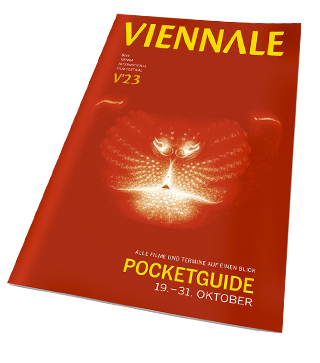In "materials" we ask filmmakers to send us images, statements, stories, videos or quotes that were important for creating their work or are a documentation of it.
ACHILLE MBEMBE
I wish I could have made it clearer that what is called Africa is first and foremost a geographical accident. It is this accident that we subsequently invest with a multitude of significations, diverse imaginary contents, or even fantasies, which, by force of repetition, end up becoming authoritative narratives.
As a consequence of the above, what we call “Africa” could well be analyzed as a formation of desires, passions and undifferentiated fantasies. It is a subjective economy that is cultivated, nurtured, disciplined and reproduced. To nurture it, to police it and to reproduce it involves an intensive work of imagination.
(“Africa in Motion” Interview aus “Christian Höller: Time, Action, Vision”)

"Une société qui refuse de se voir donner son identité par l’Autre est une société profondément malade.“
(http://www.liberation.fr/debats/2016/06/01/achille-mbembe-la-france-pein...)

"Der Andere, das ist Differenz und Ähnlichkeit in einem. Was uns vorschweben muss, ist eine Politik des Menschlichen, die zutiefst eine Politik des Ähnlichen und Unseresgleichen ist, aber in einem Kontext, in dem wir vor allem auch Differenzen miteinander teilen. Und diese Differenzen müssen wir uns paradoxerweise gemein machen."
(http://www.deutschlandradiokultur.de/rassismus-und-kolonisierung-die-dre...)

Within that reconfiguration, what is perhaps still holding back Africa is the stereotypical image that Europeans and Americans have of Africa and her people. Recently, when sociologist Jean Ziegler launched his book about global hunger crisis, a Swiss journalist asked him whether the low productivity of agriculture in Africa was because of the laziness of African farmers – this is a very stereotypical, if not racist proposition to make, but it seems to me that such prejudice is common among Europeans. Should Africans be worried about this image or should they just ignore it?
I think that we should leave it to Europeans to deal with their own stupidities because we have far more urgent tasks and projects to attend to. We cannot afford wasting our precious energies dealing with the kind of mental illness that Europe has caused in Africa and elsewhere. So Europe will have to deal with its own mental illnesses, racism being the first of these.
What I was saying is that the African agenda in the world that is shaping up in front of us, a world in which China is emerging as a very major player, a world in which the only proposition coming from the dying American empire is more militarism, a world in which the only idea coming from Europe is a retraction and building a fortress around oneself. What Africa needs to pursue is becoming its own centre, and putting its people to work for this. As I was saying, re-imagining a new policy of mobility which implies internal migrations, formations of new diasporas, linkages with old ones, and a redirection of energies in order to tap into energies coming from other places in the world, such as Brazil, India, and China. All of that seems to me more exhilarating than the old and failed attempt at bringing Europe to see itself more than just a province of a broader planet.
(http://africasacountry.com/africa-and-the-future-an-interview-with-achil...)




